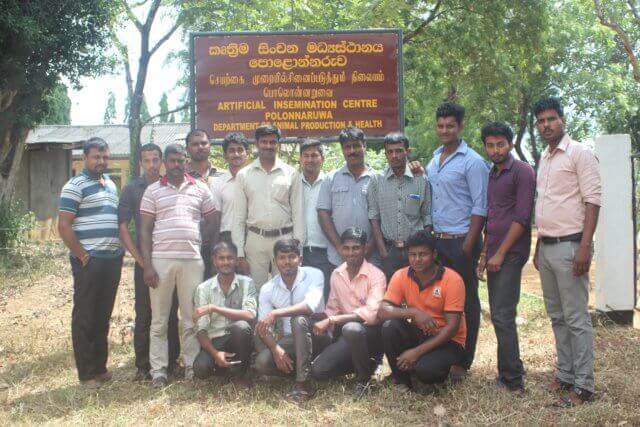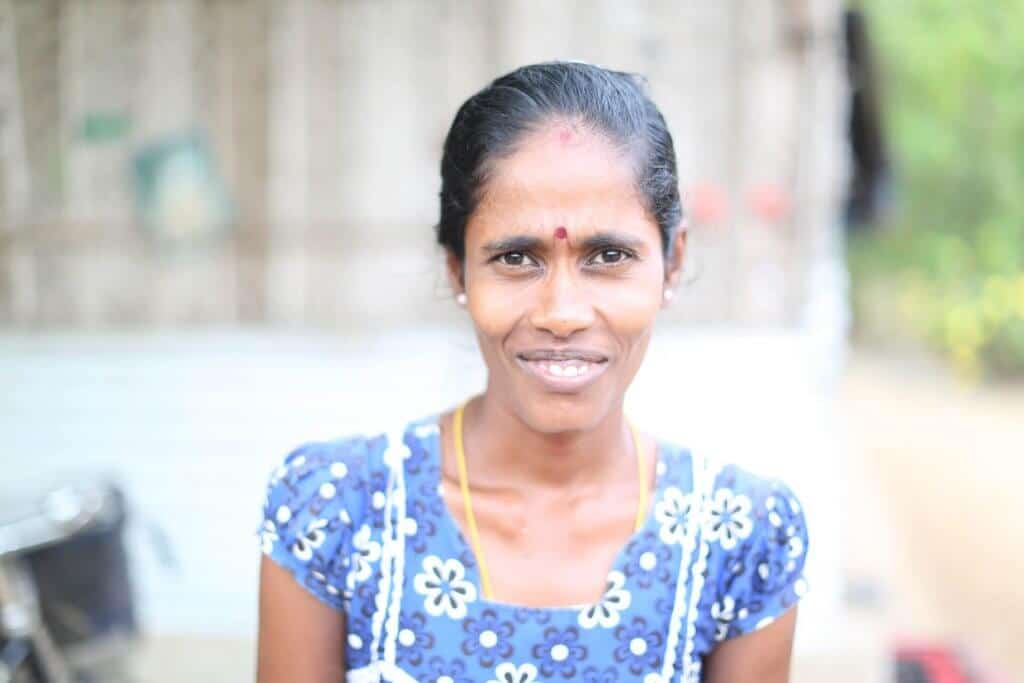Youth Vets
Thank you to all our donors, we have met our fundraising goal!
WHY ARE WE INVESTED IN THIS PROJECT?
For many decades, due to the civil war, the Northern parts of Sri Lanka was isolated from the booming Sri Lankan dairy sector.
Given this, it is no surprise that the Northern district of Mullathivu, the poorest region in the country where this project takes place, has one of the lowest annual milk production rate.
This is because techniques that help improve the breed of cattle and essential services for better cattle management fail to reach thousands of existing and potential dairy farmers.
Kumarani, one of the women dairy farmers, shares: “what is the point of rearing cattle if there are no vets and our cattle die?”.
This project aims to not only help Kumarani but over 9,000 other dairy farmers just like her.
Focusing on improving quality and health of the cattle, the programme will train thirty youth from the six divisions in the district. They will become ‘community vets’ and conduct artificial insemination and provide advice to the dairy farmers on best animal husbandry techniques. They will support the Provincial Department of Animal Production and Health (DAPH), who, although mainly responsible for developing the livestock programme, fail to reach the thousands of dairy farmers because of insufficient resources. They will also support existing Livestock Breeder Cooperatives, gathering dairy farmers, who have been severely impacted by the war and struggle to provide effective services to farmers.
By becoming ‘community vets’, the 30 youths will gain a secure job in a region where such opportunities are scarce. This is critical, especially as the prevalence of youth suicide in the North of Sri Lanka is one of the highest in the world.
THE BENEFITS
- Milk yield in the region will be increased, contributing to an improvement of the dairy sector which is fast becoming the region’s and nation’s most important sector. And that increase in the amount of milk available will benefit the population of the whole district, especially the children.
- Over 9,000 dairy farmers and their families will have access to services that will improve the quality and health of their cattle, increasing their income and enabling them to better stand on their own two feet.
- Over 9,000 dairy farmers will have better access to a wider range of services to support their livelihoods through connections with critical public and private service providers.
- Thirty young people will be trained as ‘community vets’ and run profitable businesses. They will receive a formal licence from the Government and will have the opportunity to gain a certificate on advanced artificial insemination technologies from a leading university in Sri Lanka.
- Six Government veterinary offices and six Livestock Breeder Cooperatives will be strengthened and their capacity built to deliver timely and effective services to the farmers.

HOW WILL THE PROJECT WORK?
After their formal training in how to perform artificial insemination and learn about best animal husbandry techniques, the thirty ‘community vets’ will work alongside the Government veterinary officers, who will continue to provide them with on the job training. Their work will also be supervised by the Livestock Breeder Cooperatives, who have an in-depth knowledge of the community in which they will work.
Each of the ‘community vets’ has been assigned a set number of villages and they will visit dairy farmers in those villages on a daily basis to provide advice and information, answer their requests for artificial insemination, conduct vaccination campaigns, register animals and facilitate the delivery of other programs.
The thirty ‘community vets’ will keep records on the number of artificial insemination they perform and follow up to assess whether it has been successful. If it has, they will ensure the calf and mother are well looked after and that all necessary services are provided.
By conducting such services, the ‘community vets’ will be the arms and legs of the Government in the villages, enabling critical interventions to reach farmers even in the remotest areas and strengthening and supporting thereby the work of the veterinary offices. They will also promote the activities of the cooperatives and work collaboratively with them for the benefits of the farmers in each division of the district. The capacity of those Livestock Breeder Cooperatives will be further built by setting up a fund enabling them to provide revolving loans to farmers, which will allow the latter to develop their dairy farming activities.
HOW DO WE ENSURE SUSTAINABILITY
This is a three year project which Palmera and our local partner SLCDF will be implementing. The project works within the existing structure of the Government veterinary offices and the Livestock Breeder Associations who are extremely supportive of the project and see the benefits it brings to their organisation and the community. They have committed to work with the ‘community vets’ beyond the three-year period. The ‘community vets’ themselves will have a sustainable business in an area where job opportunities are limited. Farmers and their animals will continue to reap the benefits of the project well after project completion by accessing timely and effective services.


